CONCORD, N.H. – The New Hampshire House of Representatives Election Law Committee held hearings on a series of bills on Tuesday. Here’s a recap of what was said.
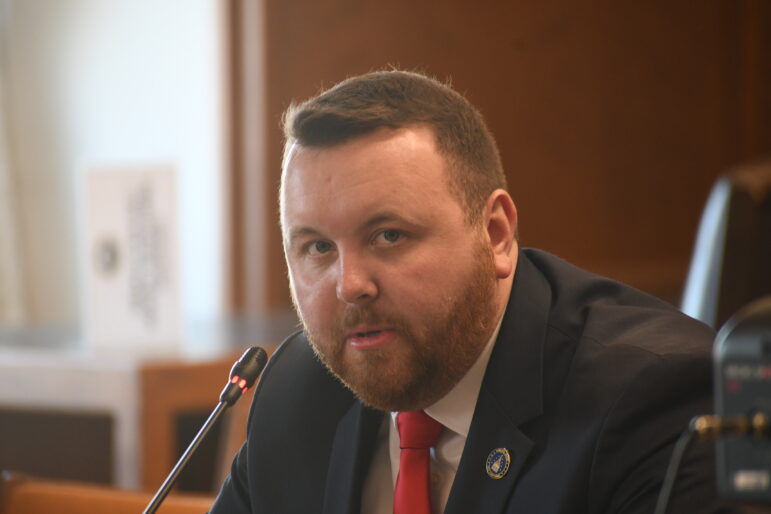
Joe Sweeney (R-Salem) was the prime sponsor for both bills, which were similar in scope. HB 115 would change the state and federal primary election to June. HB 333-FN change the state and federal primary election to town meeting day in March with the possibility of a run-off election.
Sweeney indicated that an earlier state and federal primary date, which now is held in September, would help challengers. He asked to retain HB 333-FN, but wanted to introduce the bill for the sake of discussion and study.
Tim Horrigan (D-Durham) disagreed, stating that a challenger nearly beat him due in part to the extra time that the challenger had to make his case to voters. Horrigan also noted the way that voters look at certain issues can change over a limited amount of time.
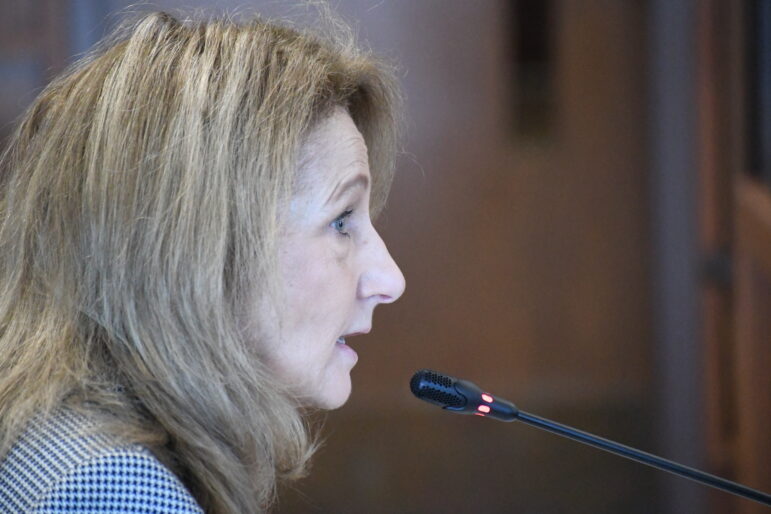
Senior Deputy Secretary of State Patricia Lovejoy said that the Secretary of State’s office is not opposed to holding state primaries a few weeks earlier, which she said that could help with UOCAVA issues.
However, she felt that it was inappropriate to conflate state and federal elections with local elections, as local issues could be overshadowed by state or federal races.
She also noted that in regard to run-off elections, the Secretary of State’s office opposes any measure that would make it unlikely that election results would be known on election night and that it could potentially violate a constitutional requirement that prohibits requiring majorities for state elections. However, it was noted that the Secretary of State’s office did not seek an official legal opinion on whether HB 333-FN would violate the state constitution.
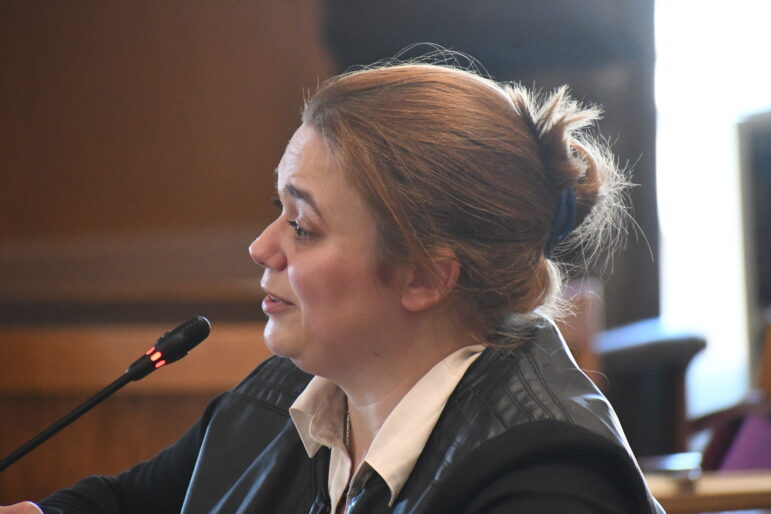
Another two similar bills, these about ranked choice voting, also had a shared prime sponsor: Ellen Read (D-Newmarket).
HB 345-FN would allow municipalities and state political parties to use ranked choice voting if they so chose. HB 350 would make ranked choice voting the method of voting tabulation in New Hampshire, replacing first-past-the-post voting.
In places that use ranked choice voting, voters can choose more than one candidate on the ballot, “ranking” them from favorite to least favorite, but are not required to vote for anyone they do not support. If no candidate in a single-member race receives a majority, the ballots of voters who chose the candidate with the least first-choice votes are examined. If those voters made a second choice, those voters’ votes are then transferred to their second choices and the process continues until one candidate receives a majority.

In multi-candidate districts, the process is the same, except the process continues until all candidates except the needed number are eliminated rather than one candidate receiving a majority.
Ireland and Australia have used forms of ranked choice voting for nearly a century, with several U.S. states and cities also using the system.
Read testified for over 30 minutes combined on both bills, with Committee Chairman Timothy Sullivan (R-Charlestown) calling the length of her testimony “unprecedented” on HB 345-FN.
Read and several other individuals supported the concept as something that can reduce negative campaigning by candidates given that candidates will seek the secondary votes of voters that support other candidates. They also said that the process helps voters choose the candidates they like rather than the “least worst” option and helped smaller parties have a chance.
They also noted successes in other states as well as situations where ranked choice voting could have better reflected the will of voters, such as when an indicted mayor in Fall River, Mass. was recalled but won the recall since his the combined votes from his opponents in the recall were fragmented.
Read also said that the plurality concern within the state constitution is limited to only state-level races, so ranked choice voting can be phased in if voters like the process in other types of elections.
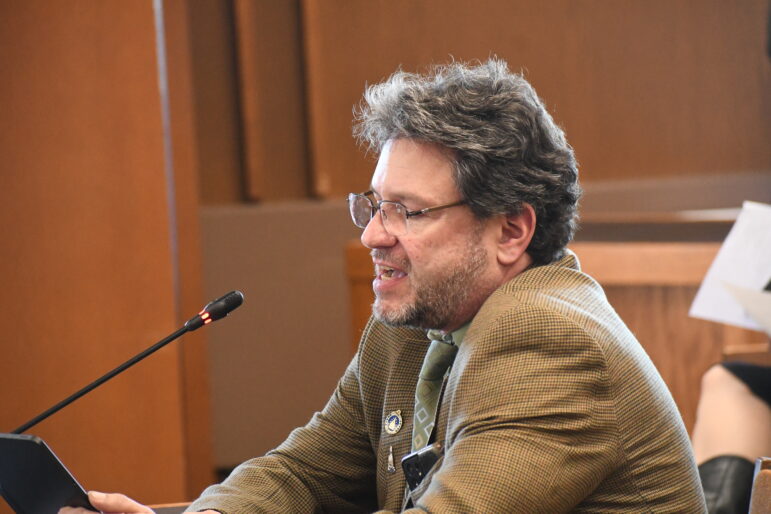
Eric Turer (D-Brentwood) also added that it was one of the key issues he heard from constituents during election season.
Dan McGuire (R-Epsom) was not opposed to alternatives to first-past-the-post, but said that the counting system in ranked choice voting was complex. He also visited Australia said he could not meet anyone there who could explain how ranked choice voting works. However, he also noted that it was widely supported due to national pride since it was first used in Australia.
Lovejoy expressed concerns that changes to the state constitution regarding allowing plurality rather than majority victories in elections would be needed if ranked choice voting was approved.
Logistically, she said that it might be feasible with newer voting equipment or equipment that allows rapid scanning of ballots, but also noted that recounts currently require hand counts.
Ross Barry (R-Manchester) asked Lovejoy if ranked choice voting during presidential primary elections could be decided by the time subsequent states hold their presidential primary elections, and Lovejoy said she was unsure.
She added that the timelines for recounts and other deadlines could need more time given counting requirements for ranked choice voting.
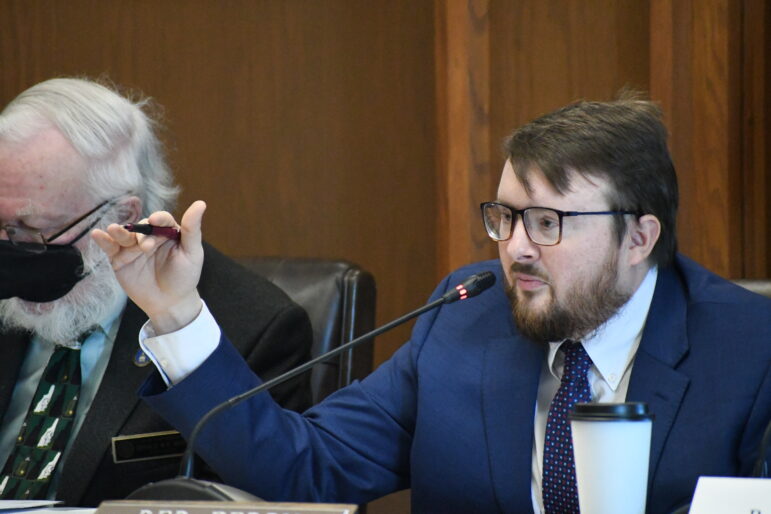
Other
Due to confusion over whether a public hearing had been scheduled for HB 402-FN, no action was taken on that bill. The committee voted 19-0 to place HB 101-FN as inexpedient to legislate and placed on the house’s consent calendar. The bill would require voters to register with a party four months prior to a party primary. Barry made the motion, believing the change was unnecessary.
HB 116-FN was retained for further study. That was also done by a 19-0 vote.







